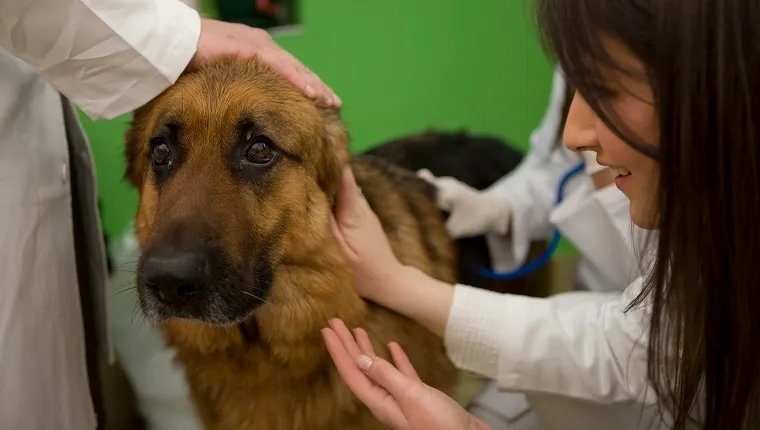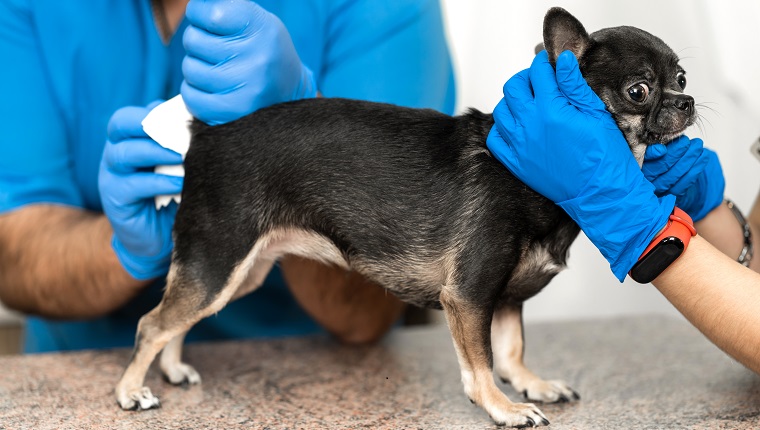Perianal fistula in dogs is a medical condition where a dog’s anus and the surrounding area becomes inflamed. It can cause pain and also lead to complications and issues when it comes to defecating (pooping).
The condition seems to affect German Shepherds more than other breeds of dog.
If you see signs that your dog is suffering from inflammation or concerning symptoms, then you must consult your veterinarian for a proper diagnosis and advice. Here’s what you should know about the symptoms, causes, and treatments of perianal fistula in dogs.
Symptoms Of Perianal Fistula In Dogs
Perianal fistula in dogs can produce a number of symptoms that often affect a dog’s defecation. Some of the most frequent symptoms include:
- Constipation
- Diarrhea
- Incontinence
- Losing weight
- Audible sounds of pain while defecating
- Licking the anus area more than usual
Causes Of Perianal Fistula In Dogs

The precise cause of perianal fistula in dogs has not been definitively determined.
In general, dogs with sweat glands situated around the anal area seem to suffer from the condition the most. Additionally, non-neutered male dogs appear to develop the condition at a higher rate than other dogs, as well.
When it comes to specific breeds, German Shepherds seem to have a higher risk than any other breed of dog.
Veterinary Treatments
If you suspect that your dog is suffering from perianal fistula, your veterinarian will want to closely examine the area of the body being affected.
Your vet will pay close attention to any visible inflammation and irritation around the anus area, along with checking for any bacterial infections. In some cases, vets can use a biopsy to confirm a diagnosis.
When it comes to treatment, the first step is usually to properly clean the affected area. The use of water therapy and warm applications around the affected area can also help to alleviate the condition.
In many cases, vets will suggest dietary changes, including adding more fiber to mealtimes and possibly using a stool softener supplement.
In severe cases, vets may recommend a surgical procedure to safely remove infected and inflamed tissue.
If your vet prescribes your dog any medication as part of a course of treatment, it is important that you stick to the precise dosage and frequency instructions and complete the entire course of medicine.
Has your dog ever suffered from perianal fistula? What kind of treatment did your vet provide? Tell us all about it in the comments below.









